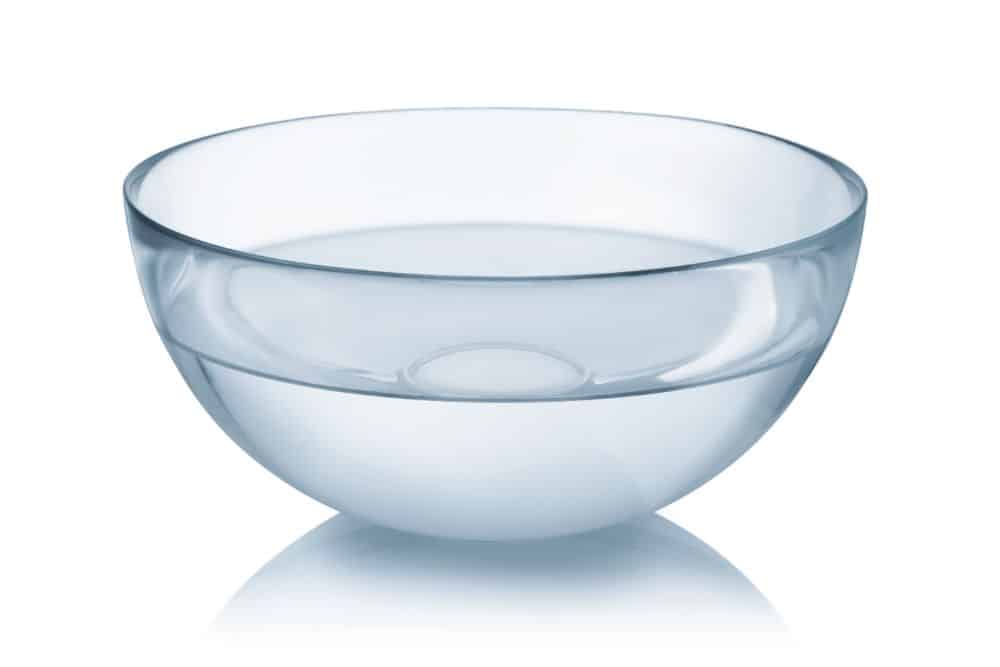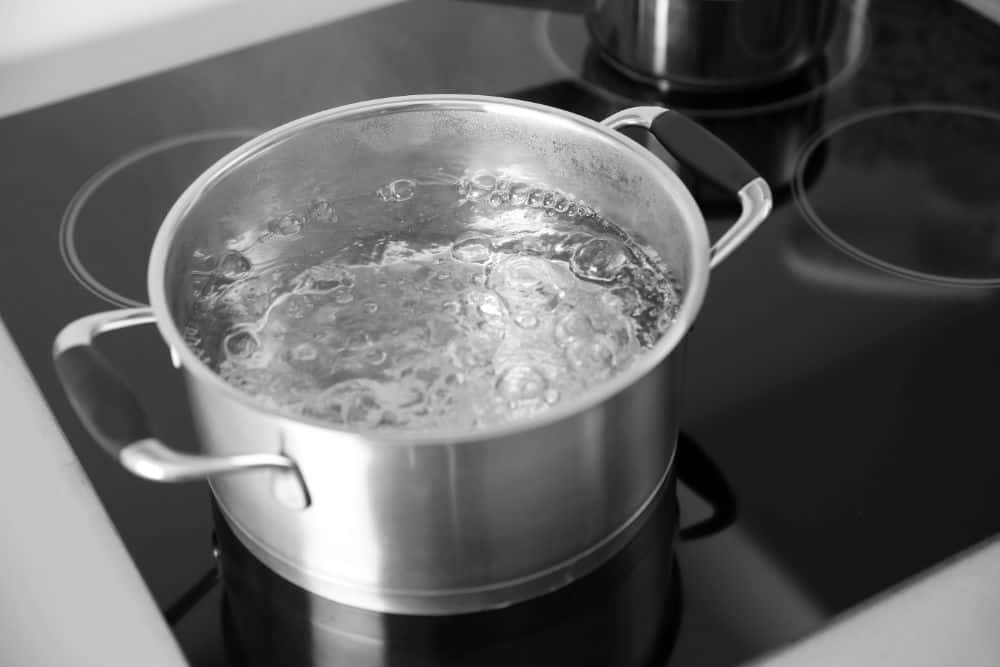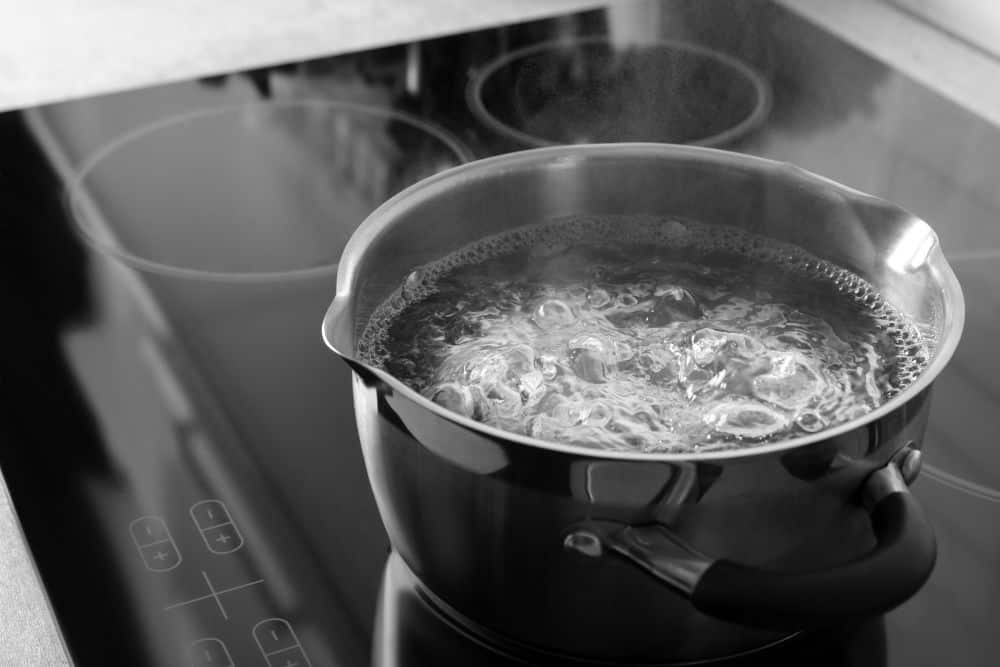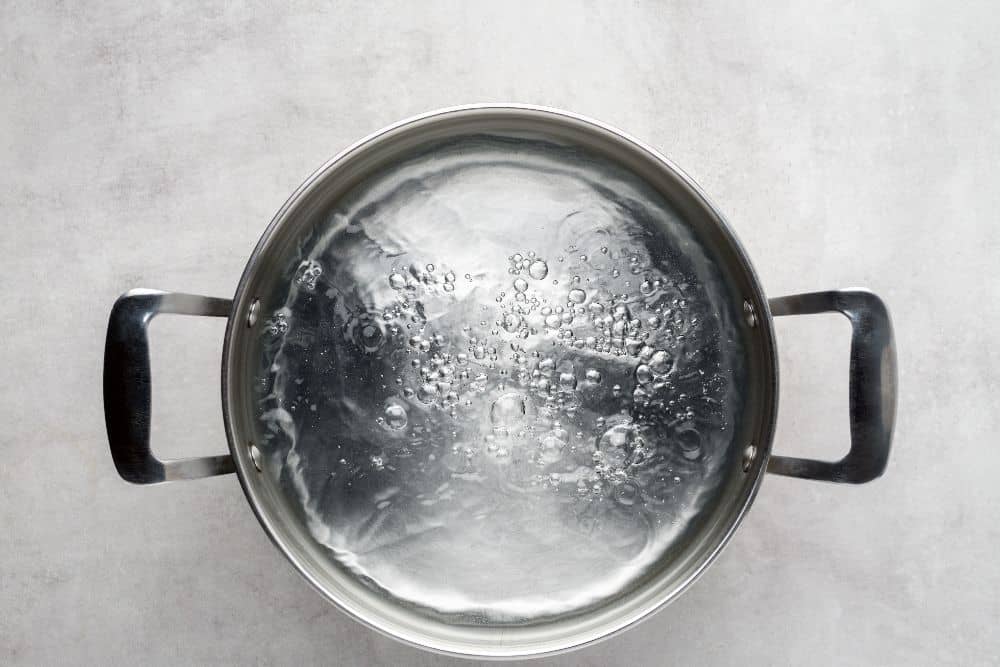When cooking, sometimes we may need water to evaporate quickly so that the liquid preparation, such as a sauce or soup, gains thickness. In cases like these, would it be best to cover the pot or leave it open? Does water evaporate faster with or without a lid?
The simple answer is that water will evaporate faster if you take the lid off. Read on to know all the details about the evaporation process and how to boil water efficiently in the kitchen.
Part of the water cycle is its evaporation, followed by condensation and then precipitation, at which point the process begins again. Whether or not boiling temperatures speed up this cycle, a liquid such as water will naturally evaporate into the atmosphere, taking a new form and adding to atmospheric humidity.

Evaporation Can Take Quite a While - Whereas Boiling Changes Liquid to a Gas Much More Quickly
In nature, evaporated water molecules will spend roughly ten days in the air. They will form clouds, which in turn create rain, which then falls back to land and begins the water cycle of evaporation once again. When enclosed with something such as a lid, this process of water evaporation will actually slow.
For a liquid such as water to move into the gaseous phase (evaporation), enough energy must build to cause the water molecules to spread out, forming bubbles and leading to a boil. As it reaches its boiling point, water begins to convert into vapor.
Water typically boils at 212 °F at sea level. However, this changes incrementally depending upon the surrounding atmospheric air pressure. You can, in fact, heat water above its boiling point, a phenomenon that’s known as superheating.

Water’s Boiling Point is 100 Degrees Celsius at Sea Level - and a Bit Lower As You Go Up in Elevation
In this situation, the water is heated beyond boiling, but bubbles do not have a chance to form fast enough. It can be dangerous, so it’s generally recommended to include a wooden coffee stirrer in the microwaveable container when heating water to avoid injury.
When looking to boil off excess water while cooking, for example, the liquid will evaporate faster when properly vented or left open to the air rather than covered. You will have better luck speeding up the process if you leave the lid off of your cooking pot completely while making meals to remove additional unwanted liquid.
If there is no lid enclosing a liquid, there will be greater surface area exposure. Suppose the amount of the water’s surface area exposed to the air increases while boiling, without a lid hindering the escape of its molecules. In that case, the amount of time it would take for the water to begin to boil will decrease, thus allowing it to evaporate faster.
Absent a lid, a single cup of water would take about 5 minutes to boil, and it would take roughly 20 minutes for the water to evaporate completely if left in a rolling boil. If a lid were present, the time required for boiling and evaporation would increase.

A Lid Will Get Water to a Boiling Temperature More Quickly, but Will Hamper the Transition from Liquid to Gas Once
If your goal is to keep your dish more saturated, to avoid boiling off much of the liquid you have added to a sauce, for example, then your best bet is to keep a lid on your pot to keep it from drying out and potentially burning.
When you keep water in an enclosed container - a closed system - it does not seem to evaporate entirely. However, its level does appear to change over time. In fact, the water molecules begin to convert to vapor from the water's surface, creating a buildup of pressure in the empty space.
These gaseous particles will remain inside the container and continue to build until it is opened, filling the space between the lid of the container and the water's surface.
These molecules will not be able to escape a tightly sealed container on their own. But the water does continue to evaporate within this closed system, regardless of its exposure to open air, as long as there is room for the conversion to happen.
Yes, the temperature of the water does affect the rate at which water evaporates. Although water will evaporate at any temperature in its liquid form with the right amount of energy, boiling water will begin to evaporate much faster than cold or room temperature water.
Humidity is one factor that affects the rate at which water evaporates. If your kitchen is more humid than normal, this will increase the time it takes for water to boil off. The reason is that there would not be enough room for the newly transformed molecules to enter the atmosphere.

A More Humid Environment Will Slow Evaporation of Water
Another critical factor will be whether water is the only ingredient in the pot or if there are other food items included in the preparation of a meal. The speed at which water evaporates while boiling will change if other ingredients absorb some of the liquid or if they are hindering the formation and escape of bubbles.
Yes, the atmospheric pressure will affect the rate of boiling. In higher altitude locations, water requires a lower temperature to boil. This phenomenon is because the air pressure is lower at those heights.
The higher the elevation, the lower the air pressure, and thus, the lower the required temperature for boiling. Similarly, when there is greater air pressure, such as that of a pressure cooker, the temperature would have to be higher in order to bring the water to a boil.
Yes. As long as the air is not oversaturated with humidity, water molecules can change form and turn into water vapor with enough energy. Unlike the bubbles that form at the bottom of a pot on a stove as it boils, water will continue to evaporate from its surface until the maximum amount of humidity is reached within a space.
As part of its cycle, water begins as a liquid. When heated by a stove, a microwave, or the sun, its molecules start to move and bounce against each other, creating energy. When that bouncing energy gets to a certain point, and molecules bounce off of one another faster, they begin to change form into vapor.
Once that vapor leaves its liquid form behind, it’s evaporated into the atmosphere, where it remains for up to ten days in nature. It will then begin to cool and return to a liquid in the form of clouds and rain. In the case of boiling water, those droplets will not return to their cooking pot unless a lid is in place.
Water can, in fact, boil in the microwave. However, superheating is always a risk, as the molecules are heated quickly, and bubbles do not have enough time to form and build from the bottom of the microwavable dish. It is best to wait before handling or utilizing microwaved water to avoid scalding or burns.
One of the fastest ways to heat and boil water is on an induction cooktop. The induction burner transfers heat directly to the pot. Therefore, it takes just a couple of minutes to boil water versus a much longer time for traditional burners to perform, including those of a gas stove.
Because the salt particles would essentially get in the way of the water molecules forming little bubbles, as the energy increases during a boil in an attempt to turn into vapor to make their way through the pot, adding salt would actually impede progress.
On the other hand, salted water does have a lower boiling point than fresh water. A large amount of salt would have to be added to a boiling pot of water for that to make a difference, however, which wouldn’t be appetizing for your palate and could ruin a meal.
